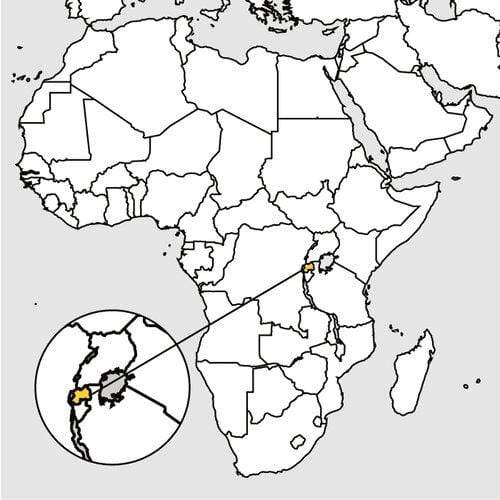



Rwanda Coffee
$ 36.95 - $ 184.75
Rwanda Coffee
Premium Single-Origin Rwanda Coffee from the Land of a Thousand Hills
Rwanda Coffee is celebrated for its vibrant citrus brightness, smooth body, and refined structure. Grown at high altitudes in Rwanda’s volcanic-rich soil, this single-origin Rwanda coffee develops exceptional clarity, balance, and natural sweetness.
With lively grapefruit notes, subtle floral undertones, and a clean, crisp finish, Rwanda Coffee delivers a dynamic yet elegant cup that reflects the precision and care of high-elevation cultivation.
If you’re searching for premium Rwanda coffee with bright acidity and smooth balance, this origin offers remarkable depth and complexity.
ROAST LEVEL
Medium Roast — Bright and Balanced
Roasted to preserve the natural citrus character while enhancing sweetness and structure.
BODY
Medium Body — Clean and Refined
A smooth, structured mouthfeel with clarity and balance.
ACIDITY
Bright — Citrus-Forward and Crisp
High-altitude growing conditions produce lively acidity that enhances fruit notes without sharpness.
FLAVOR NOTES
Grapefruit • Citrus Zest • Light Floral • Smooth Finish
A classic Rwanda coffee profile with vibrant brightness and refined complexity.
WHY RWANDA COFFEE STANDS OUT
- Single-Origin Rwanda Coffee – Grown in high-altitude regions
- Volcanic Soil Cultivation – Enhances clarity and sweetness
- Specialty-Grade Arabica Beans – Carefully selected for quality
- Hand-Picked & Artisan Roasted – Precision-crafted for consistency
- Balanced & Expressive – Ideal for fruit-forward coffee lovers
THE PERFECT GROWING CONDITIONS
Rwanda’s highland farms range from approximately 4,000 to 6,500 feet above sea level. Cool mountain air, mineral-rich volcanic soil, and steady rainfall allow coffee cherries to ripen slowly, resulting in enhanced sweetness, refined acidity, and layered flavor complexity.
THE HISTORY OF RWANDA COFFEE
Although coffee was introduced in the early 1900s, Rwanda Coffee gained global recognition in the 21st century as producers shifted toward high-quality, specialty single-origin production. Today, Rwanda coffee is known worldwide for its bright clarity and refined flavor, while supporting local farming communities and sustainable practices.
BEST BREW METHOD
Pour-Over • French Press • Drip • Espresso
- Pour-Over: Highlights citrus clarity and floral notes
- French Press: Enhances body and sweetness
- Drip: Clean, vibrant everyday cup
- Espresso: Bright, structured shot with crisp finish
BEST FOR
- Coffee drinkers seeking authentic Rwanda coffee
- Fans of bright, citrus-forward profiles
- Pour-over enthusiasts who value clarity
- Those exploring premium African origins
- Everyday specialty brewing
FAQ BLOCK
What is Rwanda coffee known for?
Rwanda coffee is known for bright citrus acidity, smooth body, and clean, refined finish.
Is Rwanda coffee acidic?
Yes, Rwanda coffee features lively, citrus-forward acidity balanced by natural sweetness.
Is this Rwanda coffee single-origin?
Yes. This is single-origin Rwanda coffee grown in high-altitude regions.
Is Rwanda coffee good for pour-over?
Absolutely. Its bright clarity and citrus notes shine in pour-over brewing.




